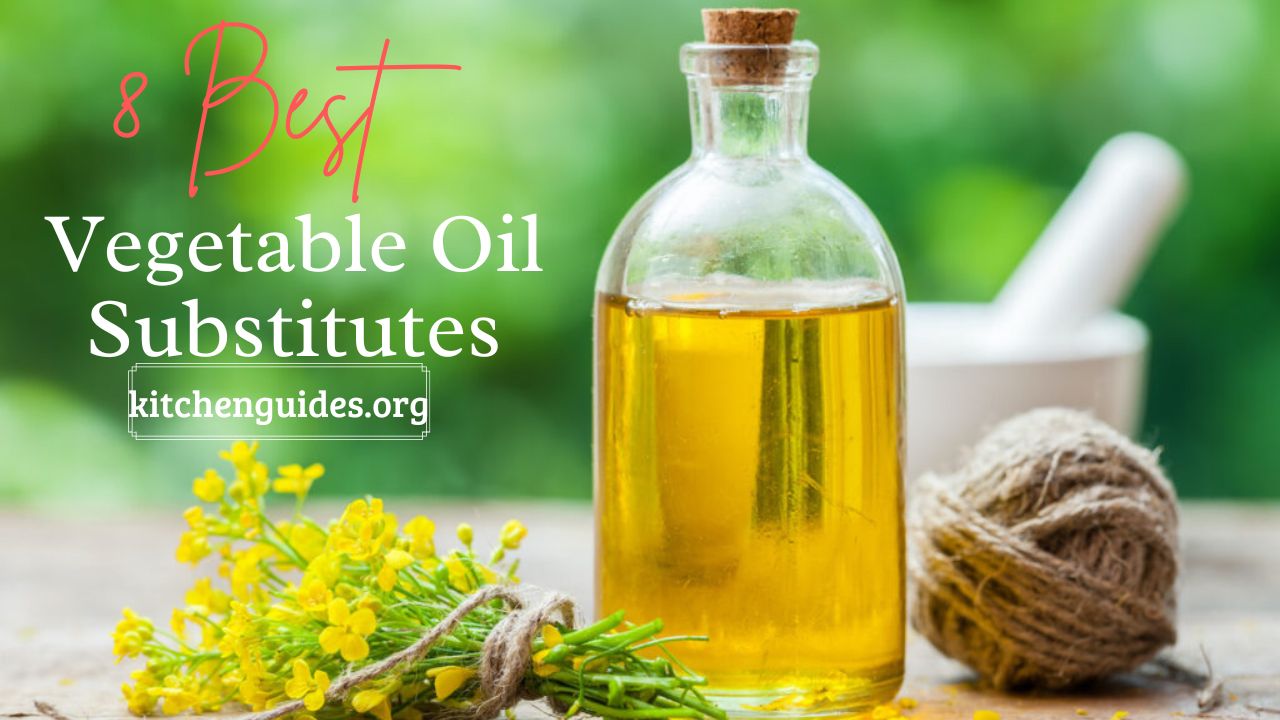Substituting vegetable oil with an alternative like avocado or coconut oil can lead to a variety of delicious recipes without comprising any nutrients. These substitutes are even good in baking and bread making, as they have high smoke points. You can also use these alternatives to replace different types of oils in your recipes, including those that are unhealthy. The replacement recipes can be easily prepared without a hassle as well. This allows you to utilize your ingredients in their optimal form and increase your chances of successful results.
What is Vegetable Oil?
Vegetable oils are the fat that is extracted from vegetables and used in many household products such as soaps, personal care products, and cooking. Vegetable oils are made up mostly of triglycerides, but also contain fats called unsaturated fatty acids.
Oils can be classified into three groups:
- Oils high in saturated fat (such as coconut oil),
- Oils high in unsaturated fat (such as olive oil) or
- Oils high in polyunsaturated fat mixed with small amounts of monounsaturates (such as corn oil).
Vegetable oils are also used to make margarine, shortening and mayonnaise.
Benefits of Vegetable Oil in Baking
Shortening is a type of vegetable oil used in baking. Shortening is typically made from partially hydrogenated vegetable oils. When the hydrogen atoms are removed, the liquid fat becomes solid and can be used in cooking.
Some shortening contains up to 98% fat with 3% or less of other ingredients.
Shortening improves gluten wheat dough’s ability to create light, airy loaves instead of dense bagels and other crust-like breads because shortening has a lower melting point than butter does, which means it won’t melt until much later into the mixing process
and also creates more surface area for leavening agent action.
Shortening also greases pans, enabling baked goods to be easily removed after baking. This occurs because shortening has more saturated fat than other types of fats and oils, and this saturated fat is more effective at binding with water. This helps remove moisture from the dough or batter, resulting in a dryer crumb structure in the baked good.
Why Do You Need Substitute Vegetable Oil in Baking?
Substituting vegetable oil for butter in baking recipes is a great way to reduce the amount of saturated fat in your diet. Vegetable oil is a monounsaturated fat, which means it is a healthier choice than butter, which is a saturated fat.
When you substitute vegetable oil for butter in your baking recipes, you will not only reduce the amount of saturated fat in your diet, but you will also improve the texture and flavor of your baked goods. Baking with vegetable oil will also keep your blood cholesterol levels normal.
Boost Your Baking Healthily With 8 Substitutes For Vegetable Oil
1. Butter
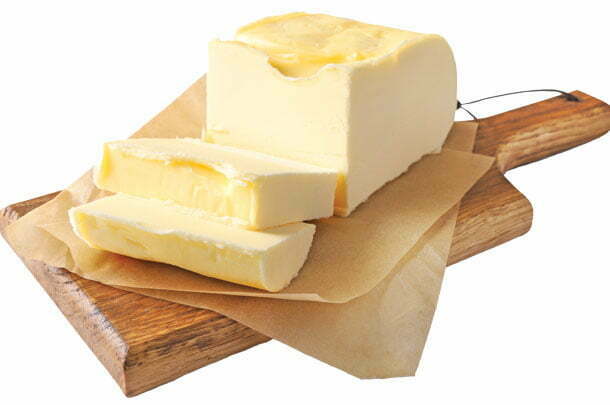
Butter has been shown in many studies to be a great substitute for vegetable oils. One study found that “butter substitutes can reduce cholesterol by up to 25%.” Vegetable oil is high in saturated fat and cholesterol, which is causing many negative health effects like heart disease and stroke.
Butter does not have this problem and is considered healthier than vegetable oil because it’s lower in saturated fat content. Butter also has a high level of smoke point, which means it will remain liquid at higher temperatures which makes it safer for cooking. Finally, butter will not break down like other oils do when they are over heated or cooked so they continue to provide their benefits as long as you cook your food properly!
If you replace butter with vegetable oil, you will reduce the amount of saturated fat in your diet without losing any flavor or moisture. You can substitute vegetable oil for butter in most baked goods recipes by replacing 1/4 cup of butter for vegetable oil in a recipe that calls for 1 cup of butter. In order to help prevent burning on your hands, wet your fingers with water before adding the vegetable oil to your recipe. Be careful though, as too much water will alter the texture and flavor of your food.
2. Avocado Oil
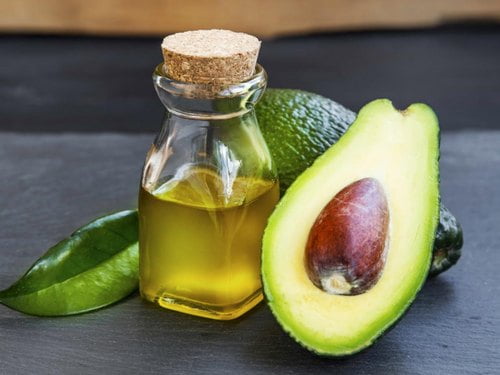
Avocado oil is a great substitute for vegetable oil in baking because it has a high smoke point, meaning it can be heated to a high temperature without smoking or burning. Avocado oil is also a good source of monounsaturated fatty acids, which are considered healthy fats. Be sure to always choose extra virgin avocado oil over refined or processed varieties.
In baking, it is best to use a ratio of 1 Tbsp of olive oil to 1 tsp of avocado oil, as the refined fats in avocado oil do not work well with most recipes. Also, most avocado oil comes from Hass avocados and are very high in vitamin K, a nutrient that is important for blood clotting.
3. Coconut oil
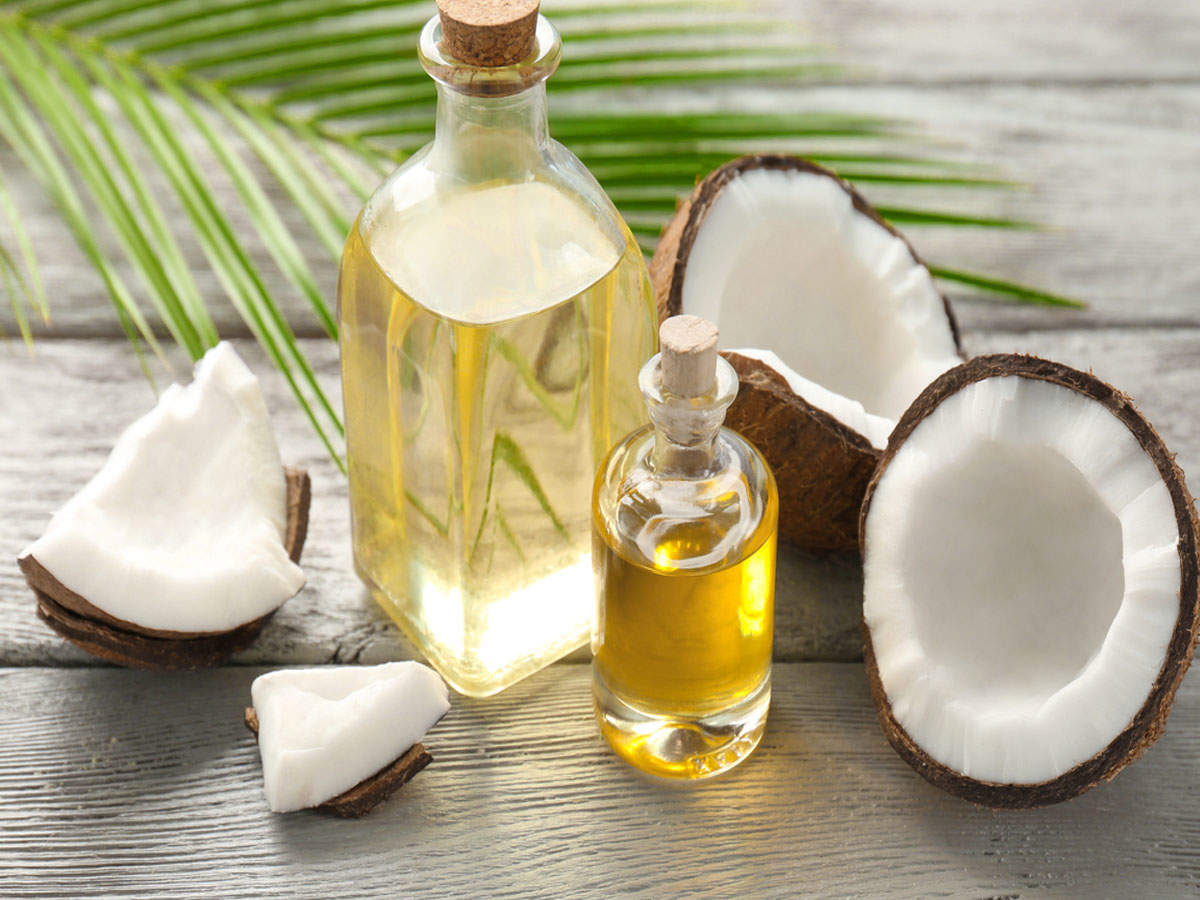
Coconut oil is a natural alternative to vegetable oil in baking. It is considered a healthier option because it is a plant-based fat that is high in fiber and nutrients. It can be substituted for vegetable oil in any recipe. If you need more coconut oil in your cooking, use more coconut milk. Coconut oil can be used in any recipe that uses vegetable oil. It is a solid at room temperature so you will want to melt it before adding it to the recipe.
The only difference between these two oils is their taste. Both oils have an equally neutral and mild flavor, but coconut oil has a stronger flavor. The stronger flavor may be an advantage for some people who prefer the taste of coconut over olive oil, or may just want a stronger flavored fat for cooking.
4. Olive oil – Can You Substitute Olive Oil for Vegetable Oil?
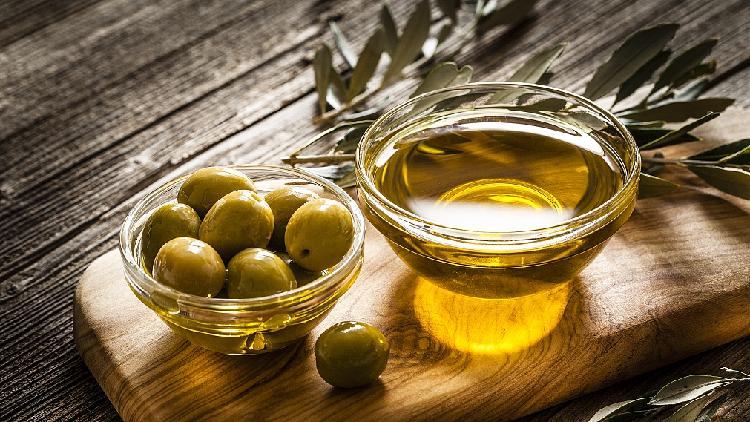
You can substitute olive oil for vegetable oil in most recipes just as you would vegetable oil. Olive oil is used heavily in Mediterranean cooking, but also in French, Greek, and Italian cuisine as well. Olive oil has a mild flavor and can be used to enhance the flavor of other ingredients. If you are using olive oil when making an egg dish or piece of fish, make sure that it has been heated properly before serving it to your family or friends. Unlike coconut and avocado oils, olive oil should not be added directly to food preparation as it will cause a significant change in the texture of your recipe if not properly combined with other ingredients.
5. Applesauce
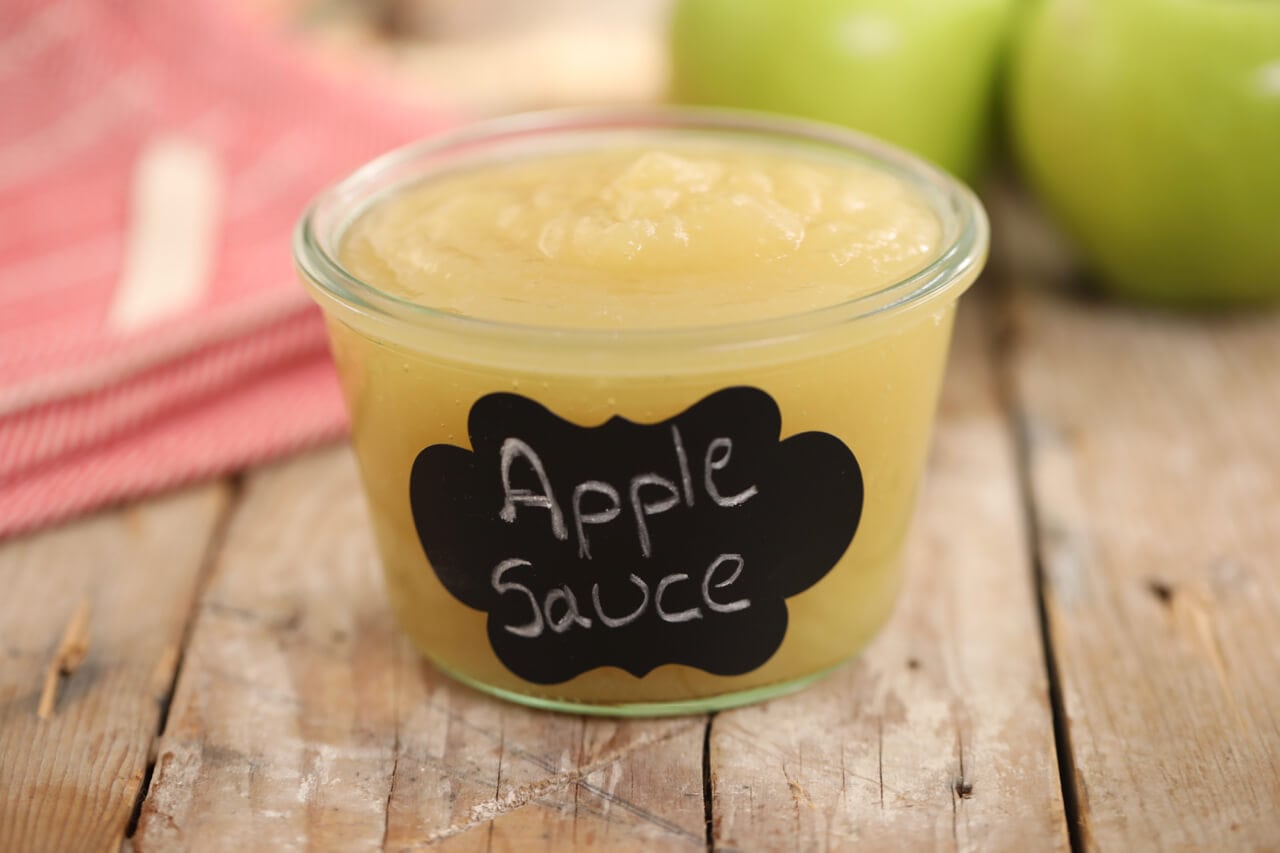
When it comes to baking, applesauce can be used as a substitute for vegetable oil, butter, or eggs. It is a good way to reduce the amount of fat and calories in a recipe, while still maintaining the same level of moisture. Applesauce is also a source of dietary fiber, vitamin C, and potassium.
Avoid applesauce that is labeled as “pureed,” as it has already had the liquid pressed out of it. This form of applesauce will not work as well in baking recipes. You can use regular applesauce or try a tart variety such as Granny Smith, Gala, or Pink Lady.
6. Ghee
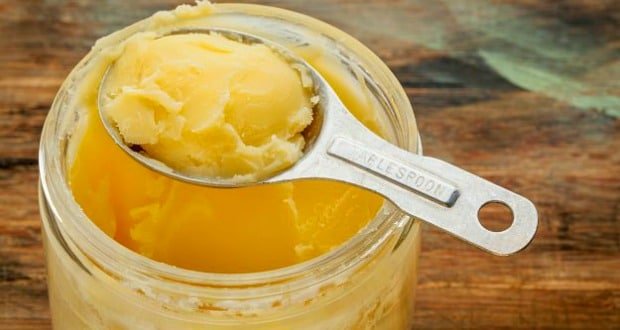
Ghee is clarified butter that has all of the milk solids removed and can be used in place of vegetable oil in baking. Ghee is made by melting butter and removing the milk solids that rise to the top as it’s being heated. It will give baked dishes a richer, more complex flavor and works well in many recipes. You can purchase ghee at most grocery stores, usually near the butter and olive oil. Ghee is also used for frying and sauteing, so it has a high smoke point. Ghee is one of the healthiest oils to use because of it’s rich source of fat-soluble vitamins like vitamin A, E and K.
7. Yogurt

Yogurt is another great substitute for vegetable oil in baking. When used in place of vegetable oil, yogurt adds moisture to baked goods while keeping them flaky. You can use Greek yogurt or regular yogurt in any recipe that calls for vegetable oil. Try adding fruit like lemon juice, vanilla extract and dried fruit to enhance the flavor of your recipe. Yogurt also has a high amount of protein which will help aid in a healthy diet.
8. Sesame Oil
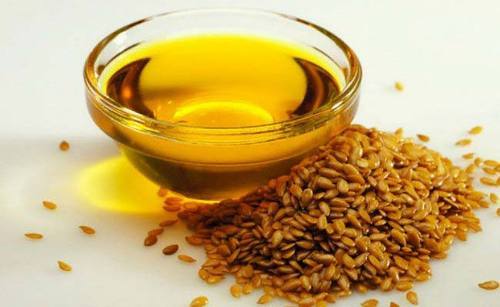
Sesame oil is a type of vegetable oil that is extracted from the sesame seed. It is often used in cooking and has a nutty flavor. It is a healthier alternative to regular vegetable oil because it is a source of Vitamin E as well as other minerals. You can use sesame oil in place of other types of vegetable oil in baked goods. To use sesame oil in your recipes, first make sure that it is at room temperature. Then, combine it with other ingredients like chocolate, honey and vanilla extract.
What Are the Risks of Using Vegetable Oil in Baking?
Oils are usually in liquid form while baking. If they are melted with too much heat, the fish will start to smoke and there is a high chance that it will catch on fire. Vegetable oil can get very hot and might cause burns as a result of being in contact with human skin for too long.
Also, vegetable oils go rancid very quickly and when used in baking products, it tends to weaken the quality of the baked product.
Another risk of using vegetable oil is that it will cake and become hard over time. This is because vegetable oils generally contain more water than other fats that can be used for baking purposes.
To sum up, the use of vegetable oil in baking is a major risk to health.
There should be alternatives to using vegetable oil in baking.
Conclusion
Vegetable oil is an important ingredient in baking. It adds flavor and moisture to baked goods while helping to make them more tender and flaky. Using vegetable oil can also reduce the amount of calories and fat in your cookie or cake recipes without sacrificing any of the taste or texture you desire.
If you are concerned about the amount of processed foods you eat in a day, try replacing some of your vegetable oil with healthier cooking oils like avocado, coconut, olive or ghee. They can be used to enhance the flavor and nutritional value of your recipes.
